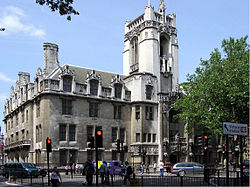
The United States is a common law country. This means that a primary source of our "law" is judicial decisions. The law is able to evolve and respond to a changing society. Judicial decisions are traditionally the most important source of new legal rules in a common law system, such as the development of new tort claims or standards of online privacy. The common law system orginated in England. As a former English colony it is understandable we would adopt this system although there are great differences between our systems.
Probably the most fundamental difference between English law and the law of the United States is the lack of a written constitution in England. Another really big difference, there is no codification of English statutes; no equivalent of the United States Code. English law is contained in about 3,000 acts of Parliament, thousands of statutory instruments (administrative regulations, rules and orders) and over 300,000 reported cases. Statutes passed by England's Parliament are not subject to review by the courts. English statutes cannot be declared "unconstitutional."
For clarification, England and Britain are not the same thing or the same place:
UK Statutes Online
England does not have the equivalent of our United States Code. There is no official codification of the laws. The acts of Parliament are bound in annual volumes. The public acts become part of The Public General Acts and Measures. The final volume for each year contains an index and tables. This set is comparable to the Statutes at Large or session laws which are chronological compilations
Guides to British Statutes
Other Online Resources
With the exception of special jurisdiction courts that deal with immigration and employment, the United Kingdom does not have a united judicial system. There are three separate systems for England and Wales, Northern Ireland, and Scotland.
In October 2009 the United Kingdom established the Supreme Court as its highest court.* Previously the Appellate Committee of the House of Lords was the final court of appeal for civil and criminal cases from England and Wales.
Both divisions of the Court of Appeal exercise only appellate jurisdiction. The Crown Court and High Court of Justice have both original and appellate jurisdiction. They will exercise original jurisdiction in matters considered too serious to be heard in the Magistrates Courts or County Courts.
H.M. Courts and Tribunals Service
Additional Resources
*The Supreme Court was established by Part 3 of the Constitutional Reform Act 2005 and started work on 1 October 2009.